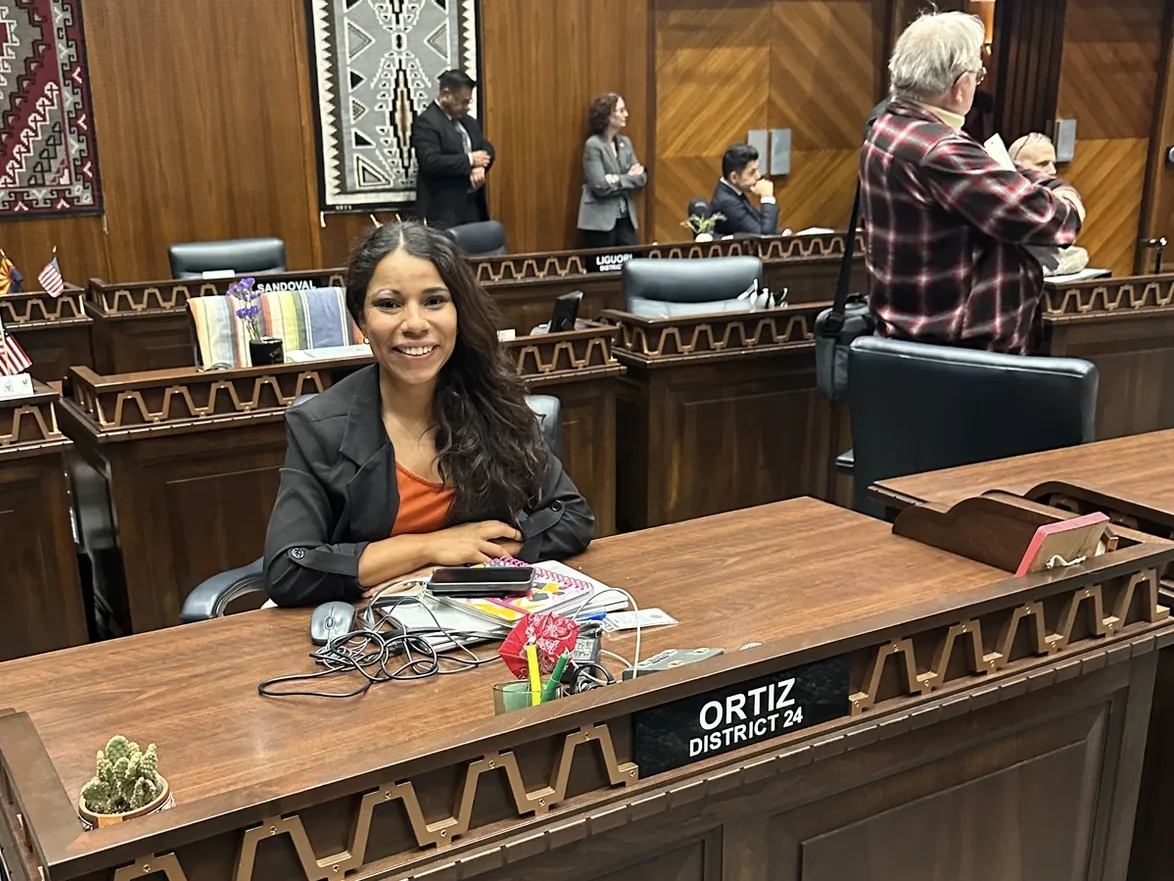AZ Lawmakers Again Try to Limit Controversial ‘Felony Murder’ Law
The law allows prosecutors to charge people with murder even if they haven’t killed anyone. Multiple people have been imprisoned for killings committed by police.

Arizona lawmakers introduced a bill last month to amend the state’s “felony murder” statute—a controversial law that allows prosecutors to charge people with murder even when they did not kill anyone. In Arizona, prosecutors have repeatedly used the statute to charge people with murder after a police officer killed someone.
Senate Bill 1181 adds two sentences to the state’s homicide statute, clarifying that a person can only be charged with murder if they actually killed or intentionally assisted in killing someone. The bill, introduced by State Senator Analise Ortiz and five cosponsors, is identical to one introduced last year by Anna Hernandez, who left the state legislature this year for a seat on Phoenix’s city council.
“Far too often, people who did not commit a murder are charged with murder under these statutes,” Ortiz told The Appeal. “It is a horrible abuse of prosecutorial power that lands people in prison for decades or even life for a murder they did not commit.”
Arizona is one of several states where lawmakers are challenging the legal doctrine. A handful of states, including Minnesota, Michigan, Massachusetts, Hawaii, Kentucky, and California, have repealed felony murder laws or limited the practice’s use.
Under Ortiz’s proposed legislation, a person may be charged with murder “if the person is the actual killer. If the person is not the actual killer, homicide requires that the person, with the intent to kill, aided, abetted, counseled, commanded, induced, solicited, requested or assisted the actual killer in the conduct that caused the death.”
Hernandez and Ortiz filed their bills after The Appeal published an investigation into the Phoenix Police Department’s killing of 19-year-old Jacob Harris. In 2019, Phoenix Police Officer Kristopher Bertz shot Harris in the back, killing him. Prosecutors cleared Bertz of all charges. He is still on the force.
The Maricopa County Attorney’s Office instead charged three friends traveling with Harris at the time with murder. Those three, who were 14, 19, and 20 when they were arrested, remain incarcerated for the killing Bertz committed.
Harris’s case renewed criticism of similar incidents in Arizona. In 2014, Phoenix police officer David Norman shot and killed 26-year-old Craig Uran during an alleged vehicle theft. Prosecutors charged Uran’s girlfriend, who was in the passenger seat of the vehicle, with Uran’s murder.
Last year, Hernandez said The Appeal’s reporting on Harris’s killing partly inspired her to file the legislation. Ortiz also cited the case’s influence on the bill, calling Harris’s murder and the incarceration of his young friends “despicable, egregious, and probably one of the worst abuses of the statute I have ever seen.”

The story brought renewed attention to Harris’s death and prompted the formation of the Justice for Jacob Harris, Free the Phoenix Three community coalition. With the coalition’s help, Harris’s friends—Johnny Reed, Sariah Busani, and Jeremiah Triplett—have been granted a chance at post-conviction relief. That process is ongoing.
Ortiz said her proposed legislation is not retroactive. It would not help release people like Harris’s friends from prison, though it would prevent such cases from occurring in the future. Ortiz said she hopes the bill starts a conversation and that she’d like retroactivity to be applied eventually.
The bill is currently before the Arizona Senate’s Judiciary Committee. The committee’s chair, far-right Republican lawmaker Wendy Rogers, must decide whether to grant it a hearing before the legislative session ends in April.
“We need to hear from people who have been harmed by the felony murder statute,” Ortiz said. “Reach out to policymakers to support the bill. We are destroying people’s lives with the abuse of this statute.”
